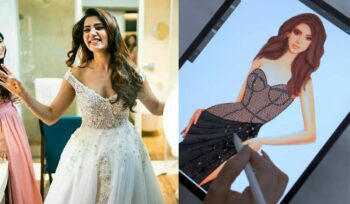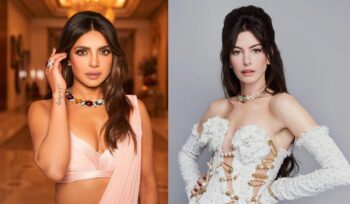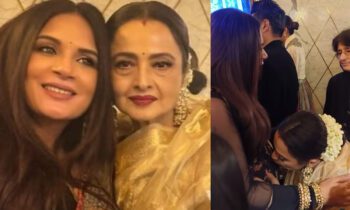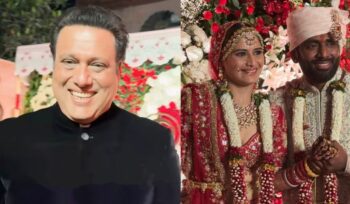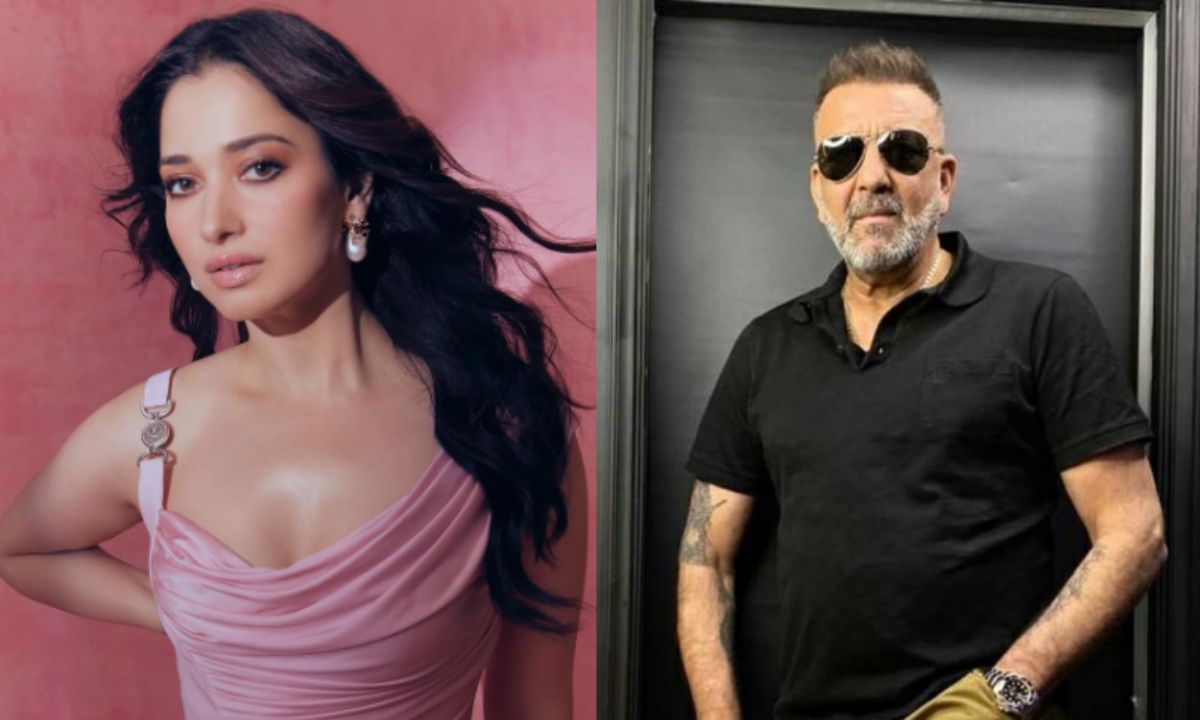SXSW ‘Hysterical’ Review: Hilarious, Incisive, Heartbreaking Account Of Women In Comedy, That Extends Beyond The Stage
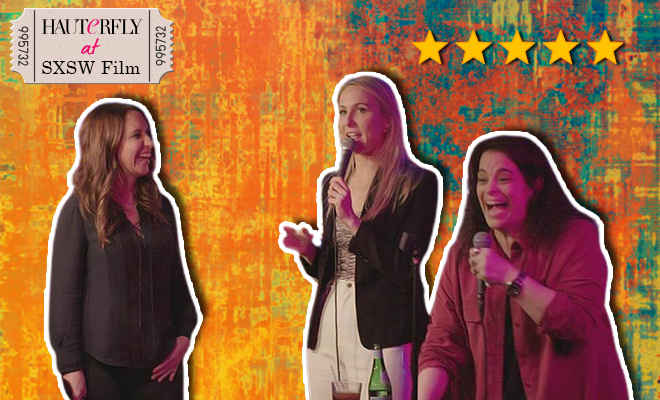
Every writer has one of these pet topics they can go on and on about. Me? I’d love to conjure entire dissertations on gender biases and sexism. But there are these women, absolutely hilarious and fucking funny women, who can get up on stage with a microphone, take years and years of insecurities, patriarchal oppression, trauma, and being told they can’t do this and can’t do that, and turn it into a sharp, funny, incisive and tight comedy set of under 8 minutes. And despite such comic genius, they get told women are not funny. Get outta here! And while you’re at it, watch Hysterical, a documentary by Andrea Nevins that premiered at the SXSW Film Festival, and gives an honest, heartbreaking but hilarious account of female comedians’ struggles to establish themselves as the true voices of our generation, which is so done with a one-sided view of the world. It premiered at the ongoing SXSW Film Festival on March 16, and will drop on FX and FX on Hulu on April 2, 2021.
View this post on Instagram
Another reason, of course, was the line up of comedians that were going to be talking about their journey here. These are some of the funniest women you’ll see on the international stage, who aren’t just comedians but also usher in social change and fight for their gender by attacking the sexism with their jokes—Margaret Cho , Fortune Feimster, Rachel Feinstein, Marina Franklin, Nikki Glaser, Judy Gold, Kathy Griffin, Jessica Kirson, Sherri Shepherd, Iliza Shlesinger, Kelly Bachman, Lisa Lampanelli, Wendy Liebman, Carmen Lynch, Bonnie McFarlane.
And can I just say, Hysterical made me pretty hysterical by the time it was done.
Andrea Nevins begins her documentary with a montage of women in comedy over the years. And what we hear them say is enough to lay the groundwork for what is going to be theme of the night. Comedy is hard. Women doing comedy find it way harder. No, not to do comedy, but to fight the patriarchy with one hand and holding the mic with the other. And yet, like absolute queens, they’ve been doing it over the years.
View this post on Instagram
Hysterical, in a span of just 1.5 hours, manages to cover a myriad of issues that women in comedy have to tackle
1. What made these women want to turn comedians, and how their families and friends took this decision
Hysterical does follow your typical documentary format with clips from several female comedians’ live shows and television special interspersed with talking heads sharing bits of their own journey. But it is what Nevins does with the material that really makes this one stand out. Most of the times, the statements made by these women apply not just to them or the comedy scene in general but to the overall existing inequality that women have to suffer.
However, they still find a way to make it so personal, with the women narrating their origin stories about being awkward little girls who didn’t adhere to the usual standards for young women’s looks, behaviour or femininity and how they started doing comedy as a way to fit in, complete with baby photos and yearbook pictures! By the end of it, you know these women, their struggles, their traumas and their personalities a little more intimately. What’s more, they make you see some of yourself in their stories too, and you remember how you turned your own insecurities into jokes. See? Women are so good at that, they’re just organically and unintentionally funny!
Also Read: Yearly Departed Review: Hilarious, Relatable AF And Cathartic, This Roast Of 2020 Has Healing Powers!
2. The specific struggle of female comedians to find open mics and stage time to hone their craft
The comedy scene for women is hard not because they aren’t funny, but because they’ve to really struggle to get their spot, which men just walk on stage and get, no questions asked. Apart from ingrained biases, there’s also internally competition that these women have to deal with to emerge on the comedy scene.
3. The unnecessary focus on their appearance and apologising for their beauty
As one of the comedians sits in a makeup chair getting her face done, she asks the makeup artist how much of work do they have to put in for male comedians like they are for her. And the answer is of course evident. The incessant focus on female comedians looking a certain way is annoying and brought out perfectly enough for us to see the antithesis—you have to be pretty so they’ll like you up on stage, but not too pretty or they won’t take you seriously—and the irony—these women didn’t fit in as girls and found a voice in comedy, but now that a lot of them do fall within your conventional standards of beauty, they’re not being taken seriously!
Women can’t catch a break, can they?
Also Read: Female Comedians Apologised For Being Funny, Being Women And Being Alive. Because Men Take Offense To Us Breathing
4. The sexist, patronising treatment they receive from other men, fellow male comics and the audience
It’s so ironic when male comedians are interviewed about how they gather material and they talk about observing other people or using their own personal stories as premises. Because as one of the ladies points out in the opening montage, “Women have an advantage in comedy. We’ve been dabbling in our feelings for far longer than men have. That’s why we’re killing the game right now.” Duh, right?
An effective tool was using actual clips of men being terrifically sexist and patronising to women comedians and women in general, over the ages. A montage of male anchors and late night show hosts using epithets like ‘little lady’ or adjectives that describe their appearances—‘young’, ‘lovely’, ‘gorgeous’. Or how being funny for a female comedian is like an afterthought—“This little lady is gorgeous AND she is funny!’
In another montage, we see in action the much common “You’re funny because you’re not like other girls, you’re like a man!” something a lot of the men on black-and-white television era told women comedians. Pretty sure they thought of it as a compliment but well….
5. The utter disregard for the safety of female comedians on tour, and how they put themselves at great risk just to prove themselves.
Many of these female comedians have braved shady hotels and bars, creepy stalkers in their audience and the unwanted sexual overtures of their fellow male comics, because they didn’t want to lose a golden chance to perform on a tour or some important gig.
6. How these women use their personal traumas and tragedies to write some incredibly funny content that is also impactful
Pain can inspire art, and comedy is no different. These women share instances of turning their personal tragedies, like a cancer diagnosis or their insecurities about their own bodies, into incisive jokes that make the audience laugh first and think over extensively the very next minute. Perhaps the most telling of all is when Margaret Cho reveals she was raped, but talks about the rapist being half her size.
7. The #MeToo movement and how it impacted the female comedy scene, bringing women together
The comedy community world over was shaken by the #MeToo wave, as we saw comedians both abroad and in India being called out for their predatory behaviour. As one of the female comedians pointed out, what the #MeToo movement did was bring these women a little more closer, shunning all that professional insecurity and rivalry over that coveted spot for one female comedian, aside.
None, perhaps, was as landmark, as when up-and-coming comedian Kelly Bachman realised that #MeToo accused Harvey Weinstein was present in the audience, and decided to use her act to call him out. It felt amazingly empowering to watch her be this brave, and of her fellow women comedians lending her their support. But what was frustrating was to see how the men in the crown booed her, proving that they were incapable of taking a joke even on someone who was generally deemed to have been a perp.
8. How political comedy is difficult but the backlash is much worse against women than against men.
Ah! Haven’t we all seen this? For male comedians, doing political comedy comes with the risk of imprisonment, jail or a legal case. But for female comedians, the comes with an added layer of danger to her person. From rape threats to their addresses being leaked, women aren’t just threatened more severely than male comedians, as is the case of comedian Kathy Griffin and her ’Trump’ head photoshoot that sparked outrage, but they are also more likely to trigger people easily.
As one of the ladies pointed out, male comedians like Bill Burr and Chris Rock have made jokes about rape on stage and garnered laughs. But God forbid if a woman were to get controversial on stage.
9. The war against gender wage gap between male and female comedians
As is in every other industry in this world, women are being paid lesser than their male counterparts in comedy too. Hysterical used actual news clippings and incidents of women comedians like Amy Schumer calling out Netflix for negotiating a much lower deal with them compared to male comedians. It was even pointed out that what a male comedian like Jerry Seinfeld or Louis CK earned in their lifelong career, women comedians earned probably half.
10. And how these female comedians have built a supportive community
These women show up for each other, perform together and cheer each other on.
Hysterical employs narrative tools that make the journey all the more fun
Hysterical is, of course, a comparison of the journeys of male and female comedians through the ages. And a very clever way of bringing that out is this dictionary slate that separates each interconnected subject. It takes a word, phrase or jargon used in comedy and presents its original meaning AND a second meaning that implies just to women in comedy. For example, we all know what childhood means. But for women, ‘Childhood’: When girls learn what they can’t do.
View this post on Instagram
The points Hysterical makes extend way beyond the comedy stage
Comedians are today considered the people that, more often the news media, are responsibly holding up a mirror to our society. And this is happening across the globe. Comedians’ voices are fuelling dissent, and this is not a new phenomenon. Earlier court jesters would find a way to call out powerful kings in front of their entire court. And that’s what comedians can do to their governments and the society.
With that being the case, women comedians are then the voices of possibly the most marginalised section of the population on this planet—women. And when they put use their jokes and sketches and gags, they want you to laugh but also spot the undercurrent of oppression and suffering that shouldn’t be dismissed.
And if these women do not get an equal platform and opportunity to talk, what’s even the point of comedy? Just to make people laugh? LOL.
Verdict
“It’s not about talking like men, or about the stuff that they talk about. It’s about our experience, and that is as valid as their’s.”
If you Google the meaning of ‘hysterical’, it says “deriving from or affected by uncontrolled extreme emotion.” When a women expresses her emotions, she is more often than not described as getting ‘hysterical’, and that is explicitly with a negative connotation.
What Andrea Nevins does with Hysterical is what women comedians have done with all the struggles and ordeals they’ve had to endure to get to make their careers in comedy—take something negative and flip it on its ass, use it as a stool to stand up on, and perform to a standing ovation. Of course, the takeaway isn’t just about these women’s relentless spirit and perseverance but also about changing the narrative and making some serious changes on the comedy circuit, as well as our lives, to make the stage an equal space for women to do their thing.
Hysterical is a brilliantly made, documentary that is equal parts hilarious and heartbreaking. It is incisive in its portrayal of the journey of female comedians, made difficult not because they lack talent but because their gender isn’t taken seriously. Well, the joke’s on you, anyone who thinks women aren’t funny. They’re killing it.
For more Hauterfly at SXSW coverage, stay tuned!
https://thehauterfly.com/culture-2/sxsw-film-festival-demi-lovato-dancing-with-the-devil-review-5-revelations/





